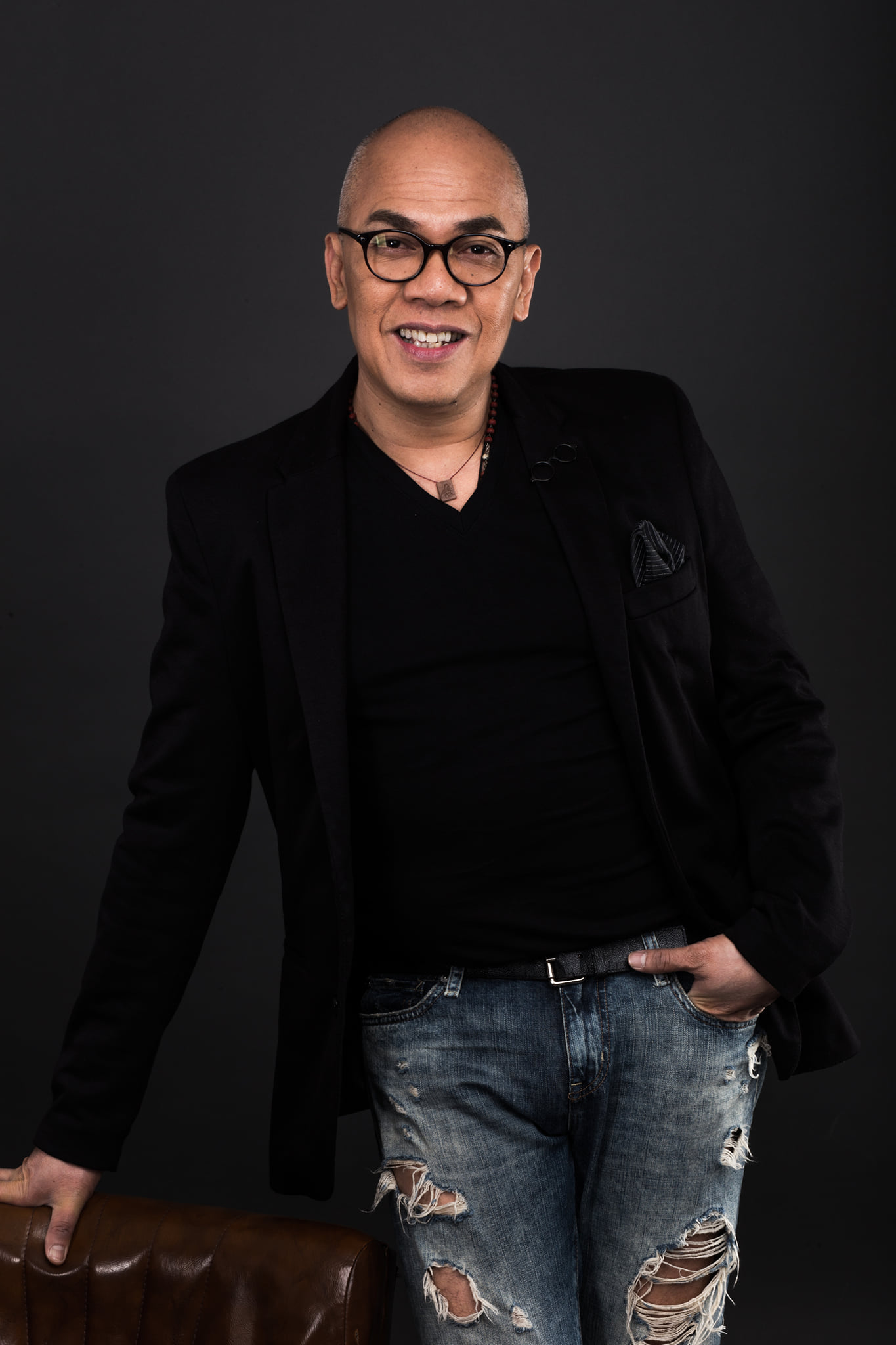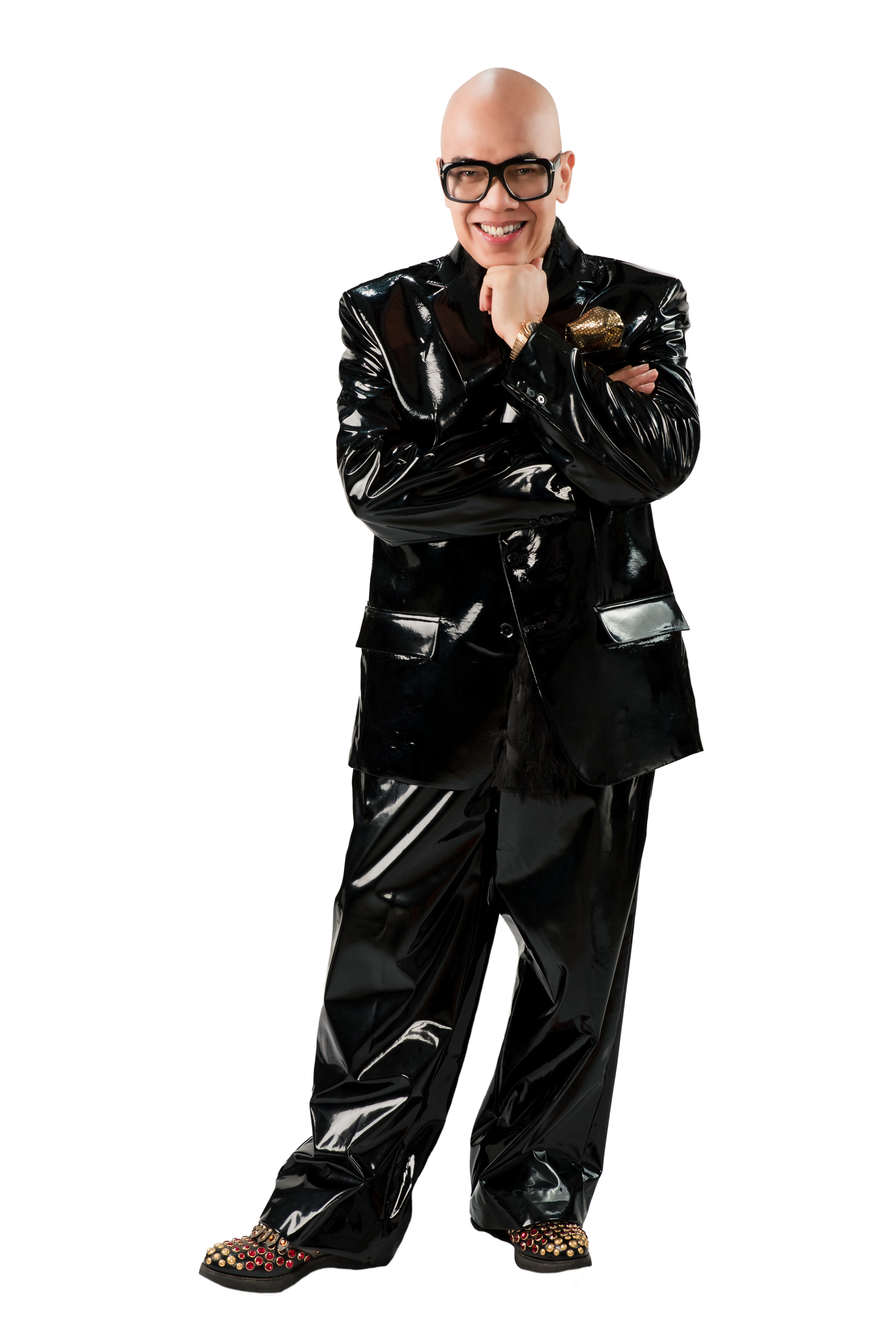Boy Abunda: People fear public speaking more than death
At A Glance
- "Alam n'yo ba na people are afraid of public speaking more than death? That is based on research," he also said. "Kasi ang nakalagay sa ating brain are the bad experiences."

King of Talk Boy Abunda shared that before the 2018 Miss Universe pageant in Thailand, Catriona Gray had texted him for advice on a powerful quote to use in her introduction.
"In 2018, when Catriona Gray joined Miss Universe. The pageant was at 7 or 8 in the morning. She sent me a text message. Magi-intro raw sila sa Miss Universe in Thailand. Can you help with a quote that would help me introduce myself as I enter?" revealed Boy during a forum on public speaking entitled "The Public Speaking Huddle" held at the Philippine Women's University in Manila recently.
Boy added: "I texted her back. The quote is from Maya Angelou, "I come as one, I stand as 10,000.' But what Catriona did was to paraphrase that: I come as one, I stand as 104 million Filipinos. So, the first solution in public speaking is staying connected to that core. Stay connected to your truth. Stay connected to your story. That's what public speaking is all about."
The host of the popular showbiz-oriented program "Fast Talk With Boy Abunda" also tackled the fear of public speaking.
"Fear of public speaking is knowing that you're going to mess up, knowing that you're going to commit mistakes. That's fear. Pag inulit-ulit mo yan that becomes anxiety. Kaya in public speaking, anxiety is more dangerous.
"Anxiety is repeating that fear. From an academic point, saan nanggaling ang fear? Fear is physical, mental, and spiritual. Anxiety is lingering. Matagal siya bago mawala," he said.
The award-winning host said, "The problem is we focus on our weaknesses."
"Alam n'yo ba na people are afraid of public speaking more than death? That is based on research," he also said. "Kasi ang nakalagay sa ating brain are the bad experiences."
(Did you know that more people are afraid of public speaking more than death? That is based on research," he also said. "Because what is stored in our brain are the bad experiences.)
However, Boy said people can change their mindset based on scientific research.
"This is scientific. Do you know that you can even change your mindset? Because your brain is malleable.
"So instead of remembering the embarrassment or humiliation when you messed up during the graded recitation, palitan mo. Change it.
"Naku, hindi huh. Noong nagsalita ako naghiyawan at palakpakan ang mga tao. If you don't have that experience, palitan mo ng imagery na napanood mo. Halimbawa, si Martin Luther King in his 1963 speech 'I Have A Dream,' people were praising him. That's what's going to happen. That's what power declaration is all about," Boy said.
(Oh, no. When I spoke, people cheered and applauded. If you don't have that experience, replace it with imagery you've seen. For example, Martin Luther King, in his 1963 speech 'I Have A Dream,' people were praising him. That's what's going to happen. That's what power declaration is all about," Boy said)
"But you can change your memory. When I was studying public speaking sabi ko, posible ba talaga yun? Oo. Ulitin mo ng ulitin. Your brain will believe you. That's how powerful our brain is. Change what you're thinking.
"Kung ang mindset mo pinaghandaan mo ito, I have three points to say tonight, the power of three, kaya ko ito, and I'm going to make them smile, ready ako, and this is how I will start. Technique: Alamin mo lahat ng gusto mong sabihin first line at least if you're a newcomer. Halimbawa pagtayo mo sa stage, "tatlong bagay ang gusto ko pong sabihin for the first time in my life kahit na ninenerbyos po ako. When you bring that experience na ninenerbyos po ako, mag-aantay ako. So you can make that interesting."
(If your mindset is that you prepared for this, I have three points to say tonight, the power of three, I can do it, and I'm going to make them smile, I'm ready, and this is how I will start. Technique: Know everything you want to say in the first line, at least if you're a newcomer. For example, when you stand on stage, "I want to say three things for the first time in my life even though I'm nervous. When you bring that experience that makes me nervous, I will wait. So you can make that interesting.)
Boy was also asked about when people should stop talking."That's my problem. You would know. May sense ka eh. Kasi pagbinigyan mo ako ng isang oras kaya ko yun. It takes time. It takes a lot of experience to be able to do that. But when you're doing a show, may tumutulong sa'yo. Pero ako ayoko ng hinaharapan ako ng papel. That bothers me. That distracts me.
(That's my problem. You would know. You have sense. Because if you give me an hour, I can do it. It takes time. It takes a lot of experience to be able to do that. But when you're doing a show, someone is helping you. But I don't want to be faced with paper. That bothers me. That distracts me.)

"But experience teaches you. Malalaman mo rin yun pag pagod ka na. Very often, hindi natin alam kung natutuwa pa sa atin ang audience. You have to get that sense.
(But experience teaches you. You will also know that when you are tired. We often wonder if the audience is still enjoying us. You have to get that sense.)
"Look at your audience. Are they enjoying themselves? Do not impose yourselves too much. So you have to be sensitive. Kung kailan ka titigil, ikaw talaga ang nakakaalam nun. You will know.
"The attention span is around 7-10 minutes. You go to a dating site, and you fall in love. So everything is very fast. Beng cognizant of that reality, you adjust your materials.
"While discussing my show with GMA 7, sanay kami sa mga one hour and a half na entertainment talk shows. Sabi ko hindi, 20 minutes lang ako. What we can produce in 20 minutes bahala na. So it's adapting to the times. Wala ng oras. Lahat nagmamadali. That's television in the context of people's behavior.
(While discussing my show with GMA 7, we are used to one-hour-and-a-half entertainment talk shows. I said no, I only do 20 minutes. What we can produce in 20 minutes is up to us. So it's adapting to the times. We don't have time. Everyone is in a hurry. That's television in the context of people's behavior.)
"When you go beyond seven minutes, you have to be powerful. In public speaking classes, meron tayong mga techniques. How do you begin? What is the middle, and what is the end of speech? Anu-ano ang paraan ng pagbubukas ng speech halimbawa. You can do a strong quotation like a quote from Meryl Streep or Bill Gates.
"Minsan nag-uumpisa ka with a rhetorical question. Iba't ibang techniques. And then paano ka nagpapa-alam? It takes a lot of practice. Maraming mga techniques on how to make your speech enjoyable. Being cognizant of the attention span is very short," he also said.
Boy said he's particular about his relationship with his audience. He suggested that speakers focus on the things within their control.
"Public speaking is an art. It is an art but it is a skill. If you ask if it can be learned, yes. Can I be a better public speaker? Yes! Can I be a perfect public speaker? No! No one is," he said.
"Ang problem ng public speaking is not about eloquence, especially in the Filipino culture. The biggest problem with public speaking is the fear of being judged. Can I say that again? The biggest problem with public speaking is the fear of being judged and being devalued.
"In public speaking, walang mataray. We are all equal. Let's create an environment of a no-judgment zone. That zone will allow you to fly and fall and rise and fall and commit mistakes and do good and master it and commit mistakes.
"But do not say, 'I'm not gonna try because I am not good enough." Do not come to my class when you have the mindset, 'I am not good enough because you are good enough.'
"Do not allow anybody to devalue your worth. Do not allow anyone to invalidate your worth. Alam ba ninyo kung sino ang madalas na gumagawa niyan? Tayo sa sarili natin."
(Do not allow anybody to devalue your worth. Do not allow anyone to invalidate your worth. Do you know who often does that? Ourselves.)
"Saan nanggaling ang fear and anxiety. Kalimitan nanggagaling sa loob ng classroom where there's so much tension. When you don't know the answer, people laugh at you when you mispronounce words. Pag mali ang English, pinagtatawanan," he also said.
("Where do fear and anxiety come from? It usually comes from inside the classroom, where there's so much tension. People laugh at you when you mispronounce words when you don't know the answer. You're laughed at when you mispronounce English words," he also said.)
Boy also shared proper breathing techniques, proper pronunciations, and the power of telling a story during the seminar.
"Listen to yourself. Listen to your gut and tap into your emotions. What comes first is understandability in public speaking. Naiintidihan ka ba? Of course, it's nice to listen to a speaker with flawless syntax, grammar, and pronunciation; we'll get there."